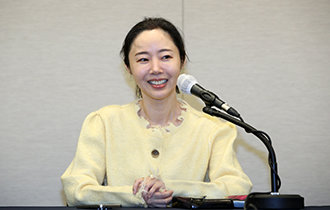Koreas 50-Somethings Eye Retirement
Koreas 50-Somethings Eye Retirement
Posted November. 16, 2006 06:12,
Housing prices have soared too much these days. I think if I had bought a large-sized apartment by taking out a mortgage, I wouldnt have to worry about life after retirement, said Mr. K, the general manager of a public company.
Since my mother is being hospitalized now, I send 1.5 million won to her every month. Getting my children married and preparing their weddings will also cost me a lot. Ive got to ask why there is so much responsibility we have to take for both our parents and our children. But thanks to soaring housing prices, I think my apartment can provide me some relief, said Mr. P, owner of a small-and-medium sized machine parts plant.
I heard that the apartment in Bundang that one of my childhood friends bought three years ago, now is priced more than two billion won. I think his preparation for the later life is done, said Mr. J, who retired a month ago as a researcher of a corporate economic institution.
Earlier this month, when the entire nation was restless due to the real estate boom, these five graduates of D high school in Daegu got together and drank at a restaurant in front of Hong Ik University in Seoul. They were all born in 1953 and now 50 years old, though, their age appeared on National Identification Card are different by two to three years because their parents were unable to register them right after the birth amid the Korean War.
Since some of them had already retired, their topics were naturally focused on how to prepare for their life after retirement. They carefully asked each other, How much money have you saved so far? The look on their face was decided by how much their houses are worth.
Mr. K, a general manager of a public company said, Ive thought really hard for the past year about what I can do after my retirement, but my conclusion is that only a gas pump attendant or janitor position is available for the retirees of my age. and raised his voice, saying, Those who made hundreds of million won thanks to rising housing prices should not mention anything about their later life preparation in front of me.
Mr. P, who is the president of small company and supposed to have no worries about retirement, also said with a sigh, I think Ive done nothing in my life. At first, I thought investment with one million won per month of yield would be enough for my later life. But that was a mistake. Since our life span has become longer, what Ive saved for my later life will never be enough.
Amid a deep sigh, Mr. K, a public officer of the central government, tried to cheer up his friends, saying, But we are fortunate to be born in the 1950s. Because our generation managed to buy a house at least if we saved really hard, even though we had to move around in so many rented houses before that. And as housing price rose, our wealth automatically amassed. But these days, it seems almost impossible for the younger generation to save up enough to buy a house.
After two hours of conversation, as the number of empty liquor bottles on the table grew, they left the restaurant, saying, Lets go to a karaoke, sing a song and forget about everything.
Those in their 50s who are living in Korea.
They were born between 1946 and 1957. They number 5.13 million, accounting for 11.3 percent of Koreas entire population.
They spent their prime age as the major players of Koreas remarkable economic development and they are self-made, making their own fortunes by themselves. Owning 26.5 percent of Koreas entire real land, they are an economically more solid generation than those in their 40s or 60s.
However, those in their 50s are finding themselves at a crossroads. They feel insecure as their physical strength is deteriorating, their authority in their family is being weakened, and at the workplace, they can be fired at anytime. The financial crisis in the late 1990s hit these people when they were still in the 40s, dealing a critical blow to their pride for the past and confidence for the future.
Theyve climbed to the top, but now what is left is only down.
These days, those in their 50s are required to live a different life than those who were in their 50s at any other times before.







